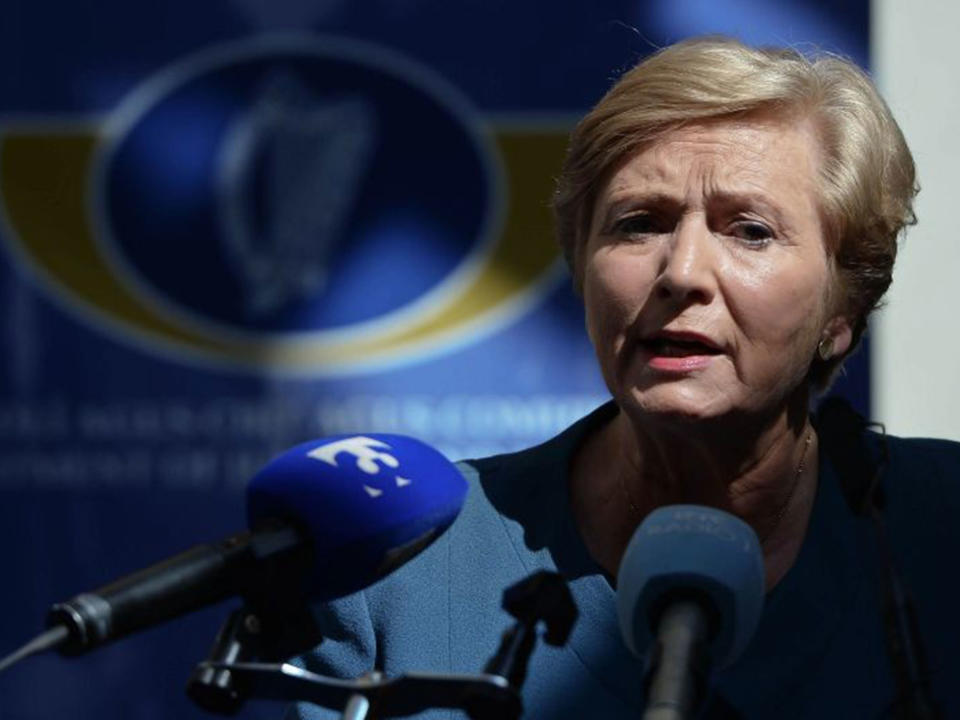Irish government on verge of collapse after motion of no confidence tabled against deputy prime minister
The Irish government could be on the verge of collapse after the party propping it up tabled a motion of no confidence in the country’s deputy prime minister.
Opposition party Fianna Fail previously agreed a three-year deal to support Taoiseach Leo Varadkar‘s government in key votes, but the motion of no confidence against his deputy, Frances Fitzgerald, is seen as a major breach of that deal.
Members of the governing Fine Gael party had warned that such a motion would end the confidence-and-supply arrangement between the two parties that allowed Mr Varadkar to lead a minority government.
Without the support of Fianna Fail, he is likely to be forced to call a fresh general election just five months into his term in office. Current opinion polls suggest neither of the two main parties would win enough seats to form a majority government.
The controversy over Ms Fitzgerald relates to her handling of a 2015 legal case involving a police whistleblower, Maurice McCabe, when she was the Minister for Justice. She has admitted being made aware of attempts to discredit Mr McCabe and failing to act to stop them, but denies any wrongdoing.
An email discovered earlier in December showed that, contrary to Mr Varadkar’s previous claims, Ms Fitzgerald had been informed at the time that lawyers for Irish police force the Garda were planning to raise questions about Mr McCabe’s integrity in order to discredit his claims about police failings.
As the controversy grew, Fianna Fail said it might scrap plans for the motion of no confidence in Ms Fitzgerald if she resigned, but went ahead after Fine Gael MPs unanimously gave their support to her after an emergency meeting on Thursday evening.
Asked by Reuters whether this meant Ireland was heading for a general election, a senior Fianna Fail source said: “Straight towards one.”
It comes just weeks ahead of an EU summit at which Ireland has a veto over whether Brexit negotiations should proceed. The issue of the Northern Ireland border has been a major sticking point during talks so far.
In an apparent reference to the difficulties in agreeing how the border should be managed once Britain leaves the EU, Irish Foreign Minister Simon Coveney of Fine Gael told broadcaster RTE that the motion against Ms Fitzgerald was “dangerous politically at a time when the country does not need an election”.
Mr Coveney said the Irish government was not yet ready to allow talks to progress and urged the UK to provide more clarity on its post-Brexit plans.

 Yahoo News
Yahoo News 

